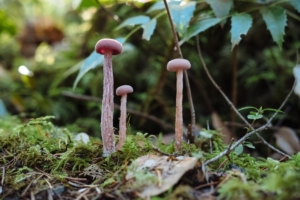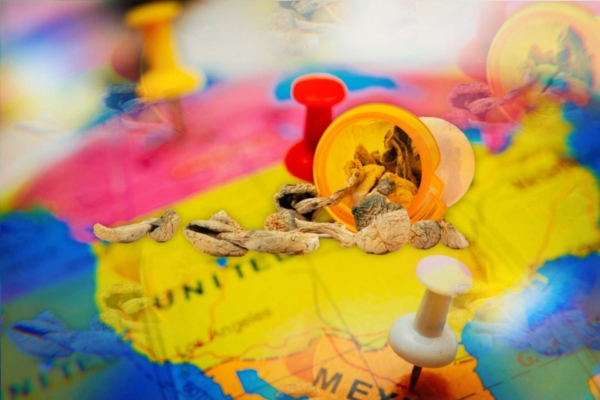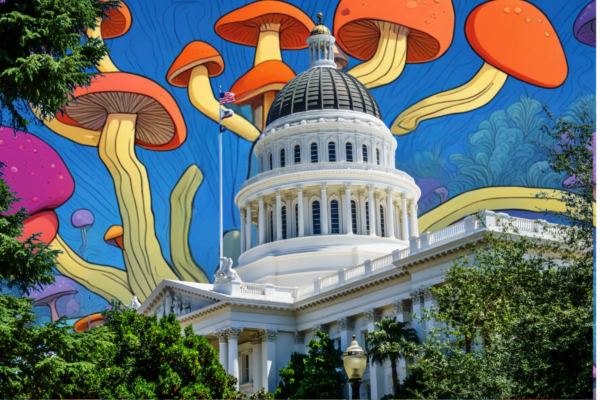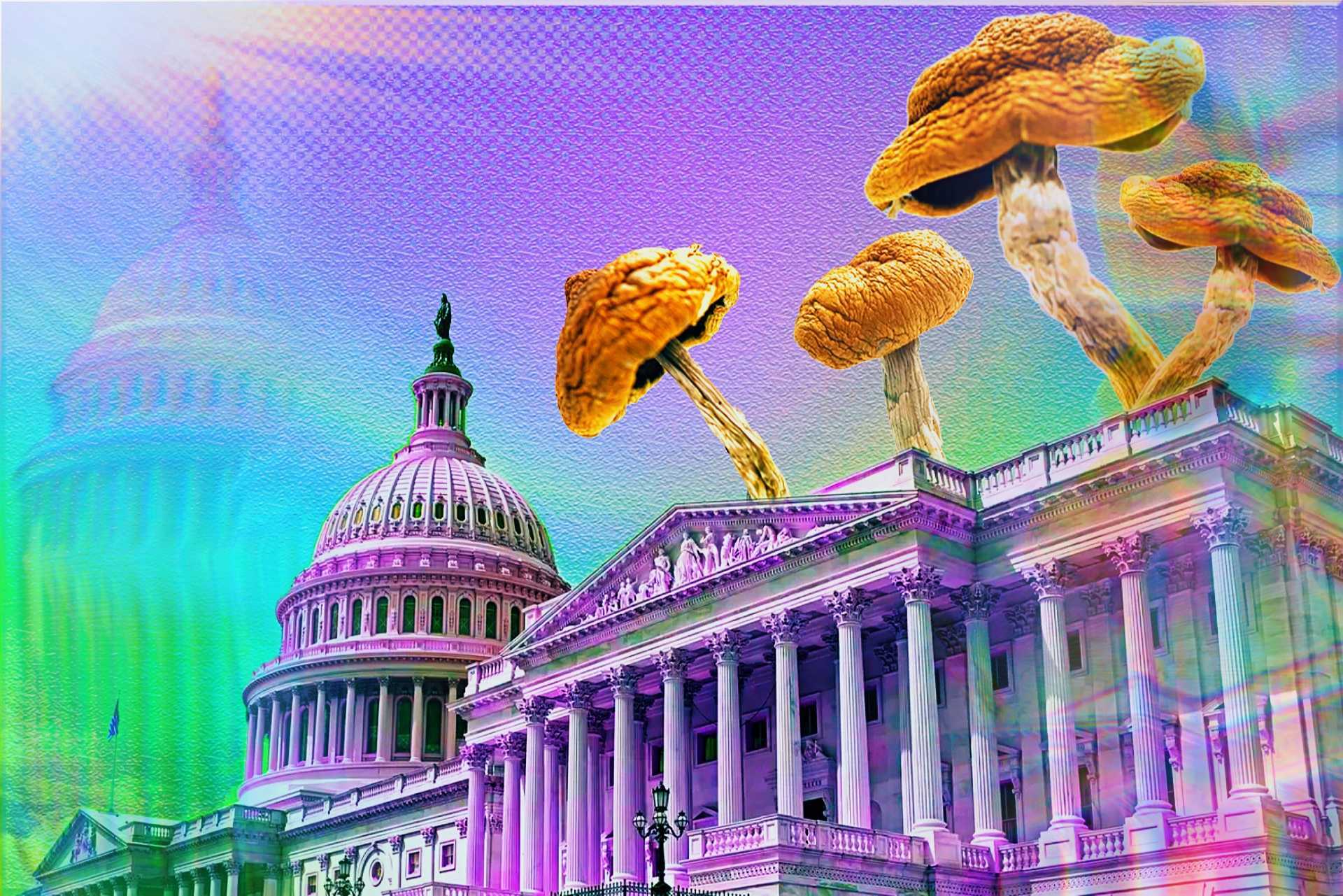
The world of psychedelic research is moving forward at a rapid pace, with new developments and breakthroughs constantly emerging. This week’s biggest psychedelic news stories include:
- A Colorado senator filed a bill to regulate the use of psychedelics.
- Nevada’s Senate Committee has passed a bill decriminalizing psychedelic mushrooms.
- North Carolina lawmakers are also getting in on the action, with the filing of a bill to establish a $5 million grant fund for psychedelic research.
- A UK university has launched a postgraduate course focused on the clinical use of psychedelics.
- A new study is exploring the safe use of psychedelics among older adults, adding even more nuance and complexity to this ever-evolving field.
Colorado Senator Files Psychedelics Regulations Bill
Colorado’s Senate president has filed a bill to enact regulations for the possession, cultivation and use of certain psychedelics for personal, therapeutic and spiritual purposes—giving a preview of the policy landscape that may emerge following voter approval of a legalization ballot initiative last year.
The legislation would set rules on certain “healing centers” where adults over 21 years old could receive psychedelic treatment, tighten up policies on cultivation and facilitators, establish licensing requirements, dictate state agency regulatory responsibilities, and impose penalties for unsanctioned activities.
While possession, cultivation, and sharing certain entheogenic substances became legal for adults after Gov. Jared Polis (D) signed a proclamation certifying the voter-approved ballot measure in 2022, the initiative also called for an advisory board to develop regulatory recommendations to inform more holistic legislation covering access to supervised psychedelic services among other issues.
Senate President Steve Fenberg (D) filed a bill on Tuesday that would establish a separate regulatory framework for psychedelics, including provisions that depart from the ballot measure and others that are opposed by certain advocates.
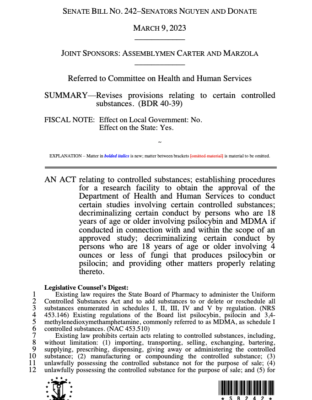
Here are some of the key components of the bill:
- The bill would maintain the voter-approved ballot measure’s policy of placing no limits on personal possession of psilocybin, ibogaine, mescaline (not derived from peyote), DMT and psilocyn by adults 21 and older.
- Public consumption of psychedelics and underage use would be punishable by a $100 fine.
- Adults could only cultivate natural psychedelics, and that activity would need to be at a private residence in an enclosed space that could not exceed 12 by 12 feet—unless within a locality that enacted a policy allowing larger grows. Cultivating beyond prescribed limits would be punishable by a $1,000 fine.
- Facilitators who provide psychedelic services, including community-based healing programs and counseling, could not be compensated, or reimbursed if they are operating outside of the licensing framework.
- An Indigenous community working group—which was not contemplated in the ballot initiative—would be created within DORA to identify and address unintended consequences of the reform, particularly as it concerns the possible commercialization of psychedelics and religious or spiritual exploitation of native people.
- The legislation clarifies that synthetic psychedelics are not permitted. And possessing psychedelics with “hazardous materials” like solvents would be considered a Class 2 felony.
- There would be four categories of licenses: healing centers, cultivation facilities, product manufacturers and testing facilities.
- The bill maintains the ballot measures provisions to block localities from banning healing centers, but says they may enact rules governing time, place, and manner of operations.
- The deadline for regulators to start accepting and reviewing license applications would be pushed back from September 30, 2024, to December 31, 2024.
The bill’s findings section notes that “although there may be tremendous potential in utilizing natural medicine for managing various mental health conditions, healing, and spiritual growth, this potential must be appropriately balanced with the health and safety risks that it could pose to consumers as well as the cultural harms it could pose to indigenous and traditional communities that have connections to natural medicine.”
Bill decriminalizing psychedelic mushrooms passes in Nevada Senate Committee
A Senate bill proposing the decriminalization of psychedelic mushrooms passed from a Senate committee on Thursday.
The bill, Senate Bill 242, proposes the legalization of psilocybin mushrooms in therapeutic amounts for scientific research purposes.
It was introduced by state Sens. Rochelle Nguyen (D) and Fabian Donate (D) and would establish procedures for a research facility to conduct studies on the medical use of psilocybin.
It would also decriminalize the use and possession of psilocybin and MDMA for people 18 years old or over who are using the psychedelics within the scope of an approved study.
North Carolina Lawmakers File Bill To Create $5 Million Psychedelic Research Grant Fund
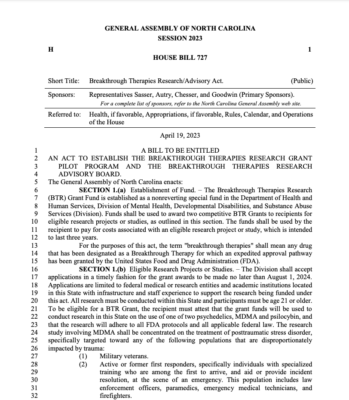
A North Carolina lawmaker along with a bipartisan group of cosponsors have filed a bill to create a $5 million grant program to support research into the therapeutic potential of psilocybin and MDMA and to create a ‘Breakthrough Therapies Research Advisory Board’ to oversee the effort.
Brought forward by Rep. Edward Goodwin (R), the bill wouldn’t legalize the psychedelics, but it would provide funding for two competitive grants through the state Department of Health and Human Services (HHS) for eligible research initiatives focused on “breakthrough therapies.”
Starting in August 2024, the department would be required to accept grant applications from in-state research entities and academic institutions that can show they’re capable of carrying out the studies, including clinical trials involving adults 21 and older.
The bill states that “the recipient must attest that the grant funds will be used to conduct research in this State on the use of one of two psychedelics, MDMA and psilocybin, and that the research will adhere to all FDA protocols and all applicable federal law.”
The psilocybin research would be required to focus on treatments for anxiety, depression, and pain management. With studies involving MDMA, researchers would explore the substance’s potential in the treatment of post-traumatic stress disorder (PTSD) for military veterans, first responders, frontline health professionals and people who have experienced domestic violence or sexual assault.
The grants are meant to fund three years of research, and recipients would need to submit a report with findings and recommendations to a Breakthrough Therapies Research Advisory Board and health department by January 15, 2028.
The board would be responsible for selecting the two grant recipients and notifying a joint legislative committee about their selection. Each recipient would receive $2.5 million.
Members of the board would need to include four people appointed by the governor; three members appointed by the House speaker; three members appointed by the Senate leader; one member of the Commission for Mental Health, Developmental Disabilities and Substance Abuse Services; the deputy secretary of health or a designee and the director of the Division of Mental Health, Developmental Disabilities and Substance Abuse Services or a designee.
Appointees would need to have backgrounds in psychedelic research, cultivation, mental health, law enforcement or be a person who is “disproportionately impacted by trauma” such as a military veteran or first responder.
New study focused on safe psychedelics for older adults
In the paper, titled “The Safety and Efficacy of Psychedelic-Assisted Therapies for Older Adults: Knowns and Unknowns,” the authors suggest that older adults are prone to develop psychological distress from their illnesses, including cancer anxiety and bereavement-related grief. They note that this distress might be effectively treated with psychedelic-assisted therapies.
Reviewing clinical trials over roughly the last 30 years that examine psilocybin and MDMA-assisted therapies, the authors found almost no reports of serious adverse reactions in study participants, including in older adults. They note, however, that “most study participants administered psychedelics have been relatively healthy and very few were over the age of 60.”
The paper notes that past research has found that some psychedelics, including MDMA and psilocybin, increase blood pressure and might cause people’s hearts to beat irregularly. The authors note that there was one severe case of heart problems in a clinical trial for MDMA-assisted therapy.
“The only drug-related serious adverse event in these trials was a transient increase in pre-existing ventricular ectopy that required overnight monitoring,” wrote the authors.
While clinical trial subjects did experience the expected spike in blood pressure, sometimes to a concerning level, the review authors found there were no reports of heart attacks or strokes.
Although the studies of psychedelic-assisted therapies reviewed by the authors highlighted improvements to participants’ conditions such as PTSD, depression, and distress associated with a life-threatening illness, they note that the low average age means that the generalizability of psychedelic therapy’s effects on older populations – especially those who are affected by chronic illnesses – is still unknown.
Researchers note that the potential benefits of psychedelic-assisted therapy for older adults’ merit additional investigations. A commentary on the review paper points out that improvements seen in recipients of psychedelic-assisted therapies may extend to their caregivers. This was observed in previous research showing lower rates of depression in caregivers when their elderly patients developed more effective coping mechanisms for their disabilities.
UK university launches postgraduate course in clinical use of psychedelics
A UK university is launching one of the world’s first postgraduate qualifications on psychedelics to teach healthcare workers about using psilocybin, LSD, MDMA and other psychoactive drugs in therapeutic work.
The certificate from Exeter University cements psychedelics as an area of scientific importance in the UK.
The program will capitalize on Exeter’s impressive psychedelics research, and will be named Psychedelics: Mind, Medicine, and Culture. It was unveiled at Breaking Convention, Europe’s largest psychedelics conference.
The certificate will cover a broad range of topics, including teaching about existing psychedelic therapies and research in psychology, psychiatry, and neuroscience, as well as modules on philosophy, such as the insights into consciousness and metaphysics that psychedelics give, and discussions of decolonizing psychedelic research and practice, including an anthropological look into cultures which have used psychedelics for centuries. Students will also learn practical skills, such as therapeutic techniques and research skills.

